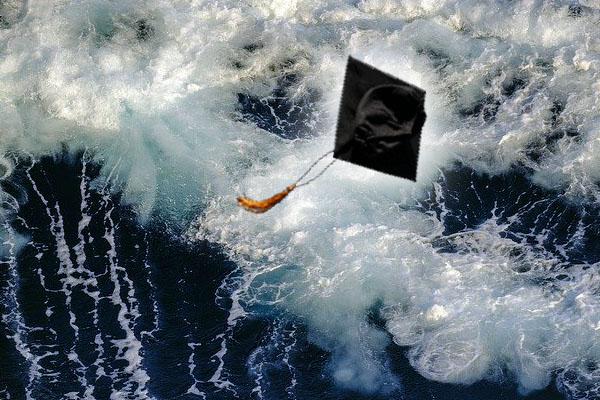If I were a 2020 graduation speaker, I would feel compelled not only to offer congratulations and encouragement to dream and bravely face life’s ups and downs, but also to apologize.
Mixed in my apology would be a sincere urging to do better than your parents if they were, as I guess, baby-boomers born between 1946 and 1964. At the same time, I would welcome you aboard to a shaky, unpredictable world that awaits your youthful enthusiasm and bountiful idealism.
My idea to use this weekly platform to apologize is not original. I’m following in the splendid footsteps of Dan Rodricks, a longtime columnist for the Baltimore Sun whose column the past Friday, May 22, 2020 prompted me to ponder the message that I would convey to this year’s college graduates.
Before I recite my sorrows, I express regret that this year’s graduates will not experience the normal ritual of a ceremonial graduation. Coronavirus and the social-distancing it spawned were the culprits in nationwide cancellations.
Though graduation often seems perfunctory—something to do for long-suffering parents who in many cases sacrificed financially to pay for four years of higher education—it is a traditional rite of passage that marks a significant achievement.
Commencement by zoom, no matter how creatively it is produced, cannot replace the joy of celebrating a milestone with your friends and family. It just doesn’t measure up.
I’m sorry that you are entering an environment dominated currently by a pesky and potentially fatal infection. Your country should have been better prepared. A health crisis that has not afflicted this nation since the Spanish flu in 1918 occurred despite warnings over the years from scientists.
Maybe you will do better when leadership falls on your shoulders, to avoid the inconvenient urgency of a horrific crisis.
Maybe you will say to yourselves and your elders: never again. Preparation is paramount. Naysayers who avoid reality must be ignored.
While on the subject of crisis readiness, I’m sorry that our national leaders have minimized the catastrophic effects of climate change and global warming. I’m sorry that our leaders pay little attention to scientists who have used peer-reviewed data to justify overriding concern about the destructive consequences of coastal erosion and the warming and melting of Arctic ice.
Maybe you will step up and say enough is enough. Maybe you will speak up and rail about shameful negligence.
Maybe you will vote for people who understand the gravity of global warming. Maybe you will participate in the political and advocacy process.
I’m sorry that strident divisiveness and partisanship define our dialogue these days. We have a serious civility deficit. We avoid those with whom we disagree, often condemning them for harboring opinions different than ours.
Political differences have always marked our vibrant democracy. Civil disagreement underscores the specialness of our young country. But now we form tribal alliances with those with whom we agree and shun those who travel a different philosophical path.
This behavior is injurious to our collective health.
Maybe you will take a different tack and embrace your friends, whatever their thoughts and opinions. Maybe you will become a slave to reason and common sense, not emotion and irrational anger.
Maybe you will be more accepting of different points of view. I hope so.
I apologize that you will find a nation not only riven by political disagreement, but also by inequality. The gulf between the haves and the have-nots has grown worrisomely wide during the past 20-30 years. Many earn exorbitant salaries, while many can barely get by on their wages. Yet both extremes work hard.
Inequality perhaps is unavoidable as long we Americans have different talents and ambitions.
Maybe you will pay heed to the complicated circumstances that cause a canyon-like separation between economic tiers, such as education, housing, family expectations and self-regard. Yes, these conditions cannot change overnight with a hope and prayer. They are too intractable.
Maybe you will choose a career in a non-profit that addresses inequality. Maybe you will be careful not to dismiss those who live impoverished lives and face huge challenges.
Maybe you will be compassionate. Maybe you will be humble.
I’m sorry that my imaginary commencement remarks may seem gloomy. I opted for stark reality, though I am naturally an optimist.
I hope and pray you will do better, far better than my generation in addressing societal ills. I’ve apologized to my daughters.
We tried in terms of racial and gender discrimination. We tried in supporting science. We tried in reforming education. We tried to be more accessible emotionally to our children. We tried to hold our political leaders accountable.
Godspeed on your journey. Ask for help. Build strong families. Develop lasting friendships. Strengthen your community.
Calm the waters, if you can.
Columnist Howard Freedlander retired in 2011 as Deputy State Treasurer of the State of Maryland. Previously, he was the executive officer of the Maryland National Guard. He also served as community editor for Chesapeake Publishing, lastly at the Queen Anne’s Record-Observer. In retirement, Howard serves on the boards of several non-profits on the Eastern Shore, Annapolis and Philadelphia.



Jeff Staley says
Well done, Howard.
Howard Freedlander says
Thank you, Jeff. Do you wonder about the world in which your children will live. How will they adapt?